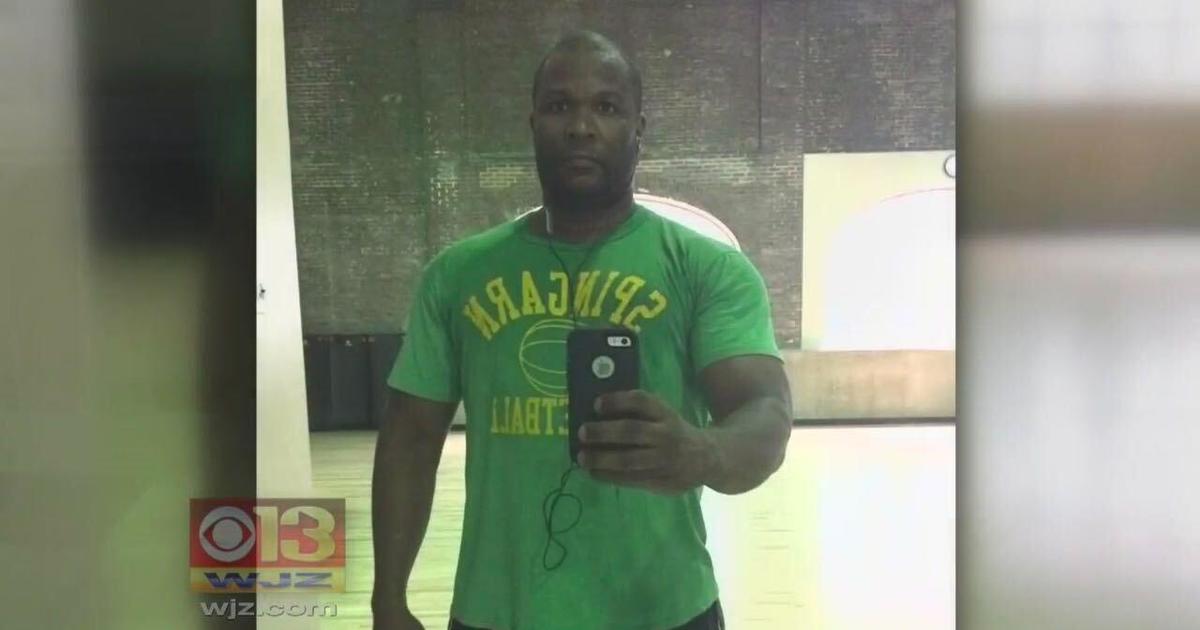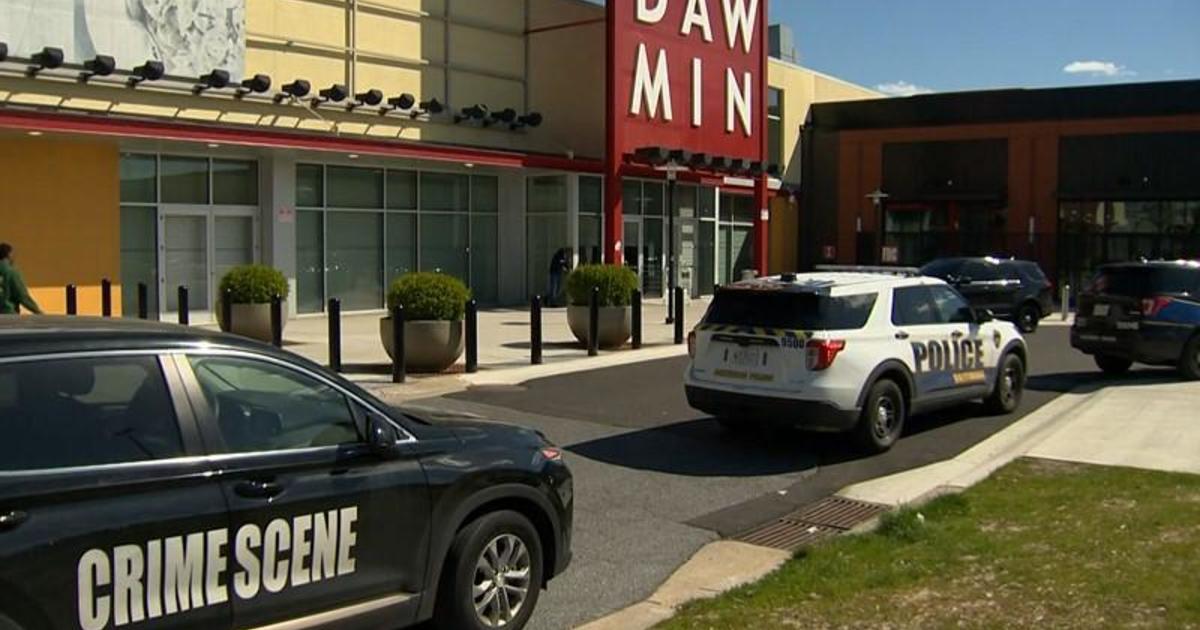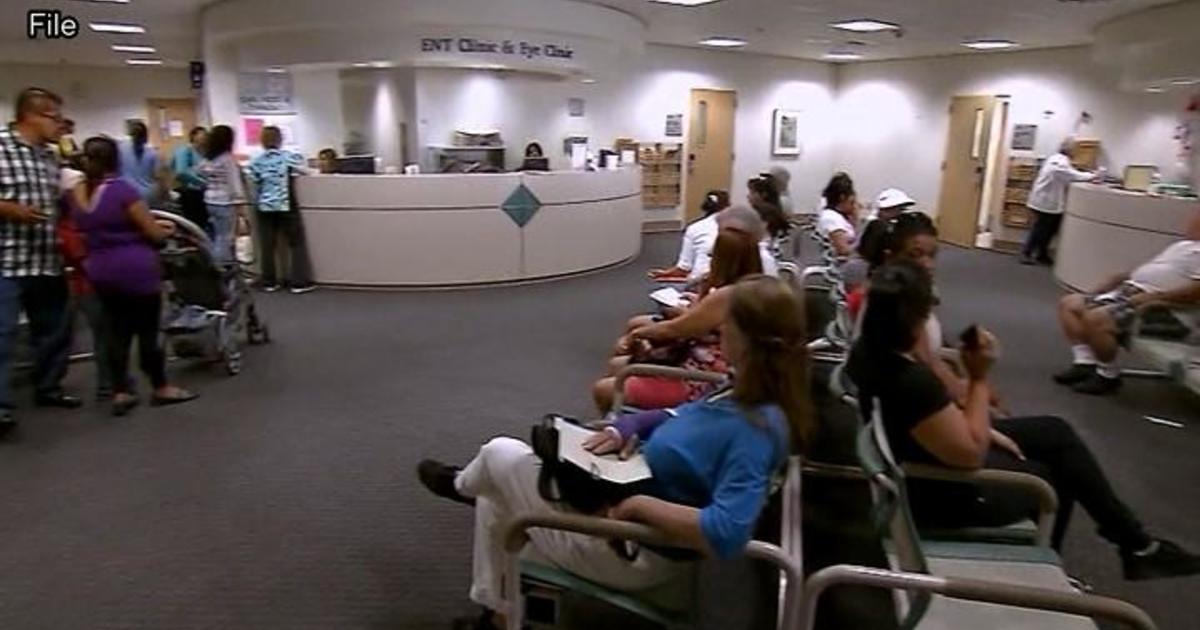New Book Explores 1973 Killing Of Israeli Official
BETHESDA, Md. (AP) -- Col. Yosef Alon was mysteriously shot dead in the driveway of his home here in the summer of 1973, an assassination with few leads, disquieting circumstances and more than a hint of international intrigue.
Fred Burton was a 16-year-old neighbor who says the killing of Alon, one of the Israeli Air Force's first fighter pilots, ruptured his sense of security in this quiet Washington suburb, propelling him into public service and a career as a police officer and State Department counterterrorism agent.
Now he's on a quest to find out what really happened, writing a book on the subject and discovering there's a lot more to the assassination than any official investigation has ever revealed.
"How does a murder occur in a neighborhood where you think everything is as it should be, what's right in life?" asked
Burton, now vice president at Stratfor, a global intelligence company.
Although the murder investigation went dormant decades ago and no one's been charged, recently declassified documents show the CIA suspected Black September -- a Palestinian terror group responsible for the 1972 massacre of Israeli athletes at the Olympic games in Munich -- killed Alon. Burton goes further, fingering a web of suspects, from young Black September operatives to senior Palestinian leaders he thinks played a part.
Burton chronicles his decades-long hunt for Alon's killers in "Chasing Shadows: A Special Agent's Lifelong Hunt to Bring a Cold War Assassin to Justice." The release of the book -- part non-fiction mystery, part primer on Israeli-Palestinian relations --comes as a new Israeli documentary also renews attention on Alon's death.
Burton's investigation spans continents, relying on thousands of pages of FBI documents, tips from informants and a 2007 Associated Press article on the case that even caught the eye of Carlos the Jackal, the Cold War-era mastermind of deadly bombings and killings. He posits that Alon, who in 1970 was appointed to Washington as a military air attachÄe at the Israeli embassy, was not only a diplomat but also an intelligence officer whose covert cultivation of Palestinian sources endangered his life.
Black September operatives had little difficulty entering and exiting the country in an era predating no-fly lists and high-tech security databases. A 1973 attempted bombing in New York City timed to coincide with a visit from Israeli prime minister Golda Meir was a reminder of the organization's disruptive presence. During the turbulent era between the Munich massacre and the Yom Kippur War, Alon's intelligence work may have made him especially vulnerable to
assassination, Burton says.
Alon was killed early on July 1, 1973 after returning with his wife from a dinner party. He paused to grab his jacket from inside the back seat when a gunman from a white sedan opened fire and shot him several times, including in the heart. The attack appeared sudden, but was actually carefully plotted, Burton says. His family later recalled suspicious occurrences suggesting Alon was under surveillance well before his death: Among them, a man who'd periodically lurk in the yard outside and sporadic phone calls from an unidentified Hebrew-speaking man who'd hang up abruptly soon after Alon's wife, Dvora, picked up.
Burton cites CIA theories suggesting that the two assassins were university students who entered the U.S. via Canada before the mission and met in Washington with an Arab professor, who helped with the planning and rented the car for the shooters. (The professor has previously denied responsibility to the AP). Burton contends senior Palestinian officials were also involved.
Some of the alleged plotters, Burton believes, have since died or been killed by operatives in the Middle East. But others are in hiding, unreachable or their identities are unknown.
"There's a little bit of a desire from me from an intelligence perspective -- I can't get it out of my past -- to see what snakes
come out of the woodwork now that this book is out. Good, bad or indifferent," he said.
Burton began casually re-examining the case in the mid-1980s as a State Department agent, interested in a rare hometown murder and hopeful the killing could shed light on how terrorists operate. It wasn't easy.
The FBI closed the case in 1976. Crime scene evidence was destroyed. The Israeli government was tight-lipped. Investigators spent time chasing fruitless theories.
A former air force commander involved in the investigation said Israel repeatedly investigated the killing into the 1990s, looking into possibilities including romantic entanglements, a criminal or espionage connection, or a Palestinian assassination. The official, who spoke on the condition of anonymity because of the secret nature of the investigation, said the results of the probe were inconclusive, Israel still has no leads on it, and the murder remains a "mystery."
Israeli Foreign Ministry spokesman Yigal Palmor had no comment.
Committing himself to reopening the case, Burton reached out in 2006 to the Montgomery County Police Department, where he once worked.
He connected with Ed Golian, a cold case detective who remembers sifting through the file as a young cop and hearing older officers discuss the case. Golian brought the authority of a police detective, Burton a rolodex of international contacts. The two spent years chasing leads and poring over documents.
"You know what you hope you do?" Golian said in an interview. "You hope you ask the right questions."
They hit several key breaks, including an interview with an informant they believed had participated in the 1973 assassination plot against Meir, the Israeli prime minister. The informant recognized Alon from a photograph and disclosed that Alon had met at least once with Khalid Al-Jawary, a Black September terrorist who was convicted in the bombing attempt and was deported to Sudan two years ago after serving about half of a 30-year prison sentence.
Another clue was Alon's daughter's recollection of a mysterious machine in her childhood home, which Burton contends was an agent-to-agent communication device. The revelation strengthened Burton's hunch that Alon was tied to Mossad, Israel's intelligence agency.
Also aiding Burton's investigation was a CIA document – revealed in a 2007 story by AP -- about a 1978 Capitol Hill briefing that implicated Black September and a "two-man hit team" who entered
the country and then swiftly left after carrying out the murder.
The document also stated that Alon was not a double agent, which Burton interprets as a CIA assurance that Alon was not spying for the US, the Soviet KGB or a surrogate like the East Germans or Czechs.
After the AP article was published, Carlos the Jackal, who's now imprisoned in France, claimed in a letter he knew the names of three Black September "comrades" involved in targeting Alon. He said the plan was called "Operation Alon."
One of Alon's daughters, Rachel Alon-Margalit, said in an interview from her home in Israel that she was appreciative of Burton's efforts, but is ultimately skeptical of the author's conclusion that Black September was responsible.
She wonders -- as did her mother -- whether the killing was somehow orchestrated by the Americans and Israelis, a theory she says was fueled by years of obfuscation by both governments.
However, she acknowledges a lack of evidence to support this version.
"I am very happy with anyone rattling the cage, anything that would bring us closer to the truth," she said.
------
Associated Press writers Adam Goldman in Washington, D.C., Randy Herschaft in New York and Matti Friedman in Jerusalem contributed to this report.
(Copyright 2011 by The Associated Press. All Rights Reserved.)



